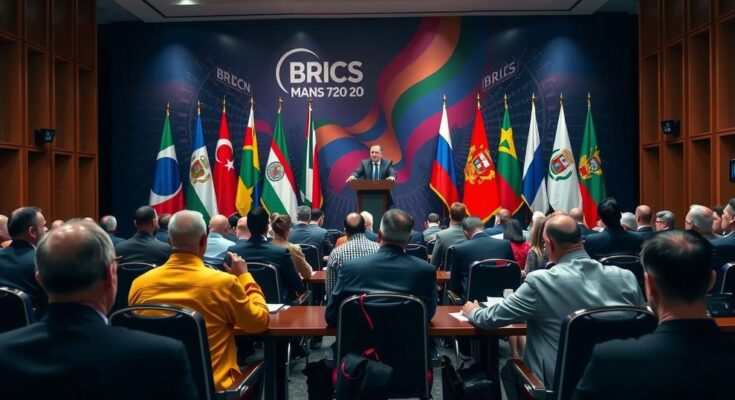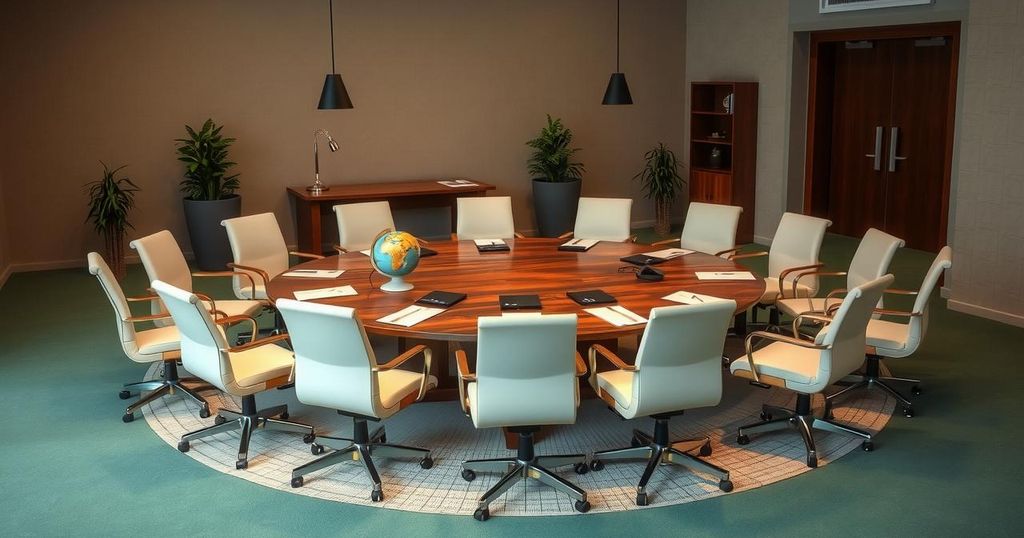The BRICS summit in Russia faces key absences, with Brazilian President Lula da Silva and Cuban President Miguel Diaz-Canel canceling their attendance due to unforeseen circumstances. Brazil’s Lula is recovering from a minor brain hemorrhage, while Diaz-Canel is dealing with serious energy issues. The summit marks a critical moment for BRICS as it expands with new members and seeks to assert its geopolitical presence amidst Russia’s isolation on the world stage.
The recent BRICS summit in Russia, hosted by President Vladimir Putin, faced notable absences as both Brazilian President Lula da Silva and Cuban President Miguel Diaz-Canel canceled their participation. Kremlin spokesperson Yury Ushakov confirmed that these cancellations were due to unforeseen circumstances. President Lula da Silva, aged 78, suffered a minor brain hemorrhage following a fall at his residence, which will require him to attend via videoconference. Meanwhile, President Diaz-Canel is reportedly grappling with significant energy crises in Cuba, preventing his attendance at the summit. The BRICS consortium, which includes Russia, China, India, Brazil, and other emerging economies, serves as a counterbalance to Western influence. This year marks a pivotal moment for the group, as it welcomed four new members—Egypt, Ethiopia, Iran, and the United Arab Emirates—beginning in 2024. This expansion is the first since South Africa’s accession in December 2010. Additionally, there are indications that Cuba has expressed interest in joining the BRICS as a partner country, as communicated in an official correspondence with President Putin, underscoring Cuba’s desire to align with this coalition of emerging markets. As geopolitical dynamics shift and Russia finds itself increasingly isolated, the Kremlin aims to utilize this summit to assert its influence and bolster diplomatic ties with allied nations. The three-day summit, termed by officials as one of the largest-scale foreign policy engagements in Russia’s history, commenced on October 22, 2023, reinforcing Russia’s ongoing efforts to counter Western hegemony on the global stage.
The BRICS grouping, which originally began as an informal coalition of major emerging economies, seeks to provide an alternative platform for collaboration in various areas, such as economics, politics, and security. The alliance has gained significance over the years as it offers member countries the opportunity to advocate for their interests and promote a multipolar world order. The recent summit highlights Russia’s endeavor to maintain relevance amidst strategic isolation following its actions in Ukraine, with a particular interest in sustaining relationships with traditional allies and expanding partnerships with other emerging economies.
In summary, the BRICS summit hosted by President Putin is notably affected by the cancellations of the Brazilian and Cuban leaders. These developments highlight the challenges facing the coalition as it navigates geopolitical complexities and internal crises. The addition of new member countries signals a shift in global power dynamics, as BRICS continues to position itself as a significant player against Western dominance.
Original Source: kyivindependent.com




